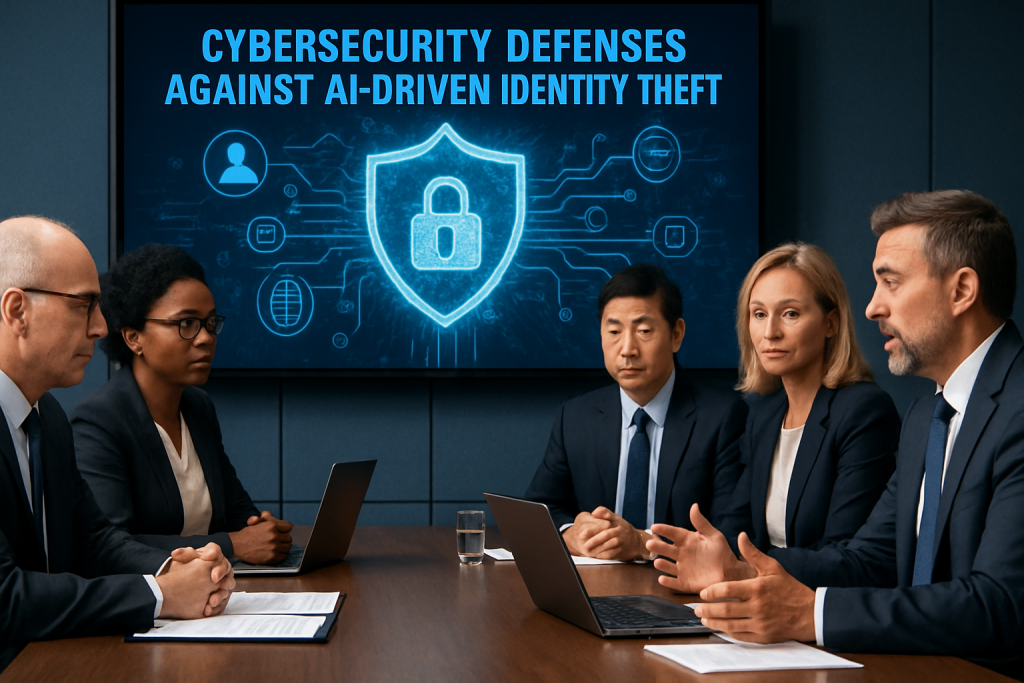India has emerged as a major global hub for AI-powered identity theft, creating unprecedented cybersecurity challenges for businesses worldwide. Criminal organizations now leverage sophisticated artificial intelligence and generative AI tools to blur the lines between authentic and fabricated digital identities, making personal data protection increasingly complex for enterprises across all sectors.
Employees of Indian companies have experienced official email and login compromises by threat actors who exploit stolen credentials to launch broader attacks against other enterprises. This criminal activity compounds existing security challenges that organizations already face from ransomware, phishing, and malware threats. India ranks among the top 10 countries globally for identity theft incidents, highlighting the escalating nature of this cybersecurity crisis.
Why Business Leaders Must Act Now
The rapid evolution of AI-driven cybercrime demands immediate attention from corporate leadership. These sophisticated attacks target the foundation of business operations: employee credentials and corporate communication systems. When criminals gain access to legitimate business accounts, they can infiltrate entire network infrastructures, potentially causing millions in damages and operational disruptions.
Cybersecurity experts report that AI tools have fundamentally changed the threat landscape. Criminals can now create convincing fake identities, generate realistic phishing emails, and automate large-scale attacks with unprecedented efficiency. This transformation requires businesses to completely rethink their security strategies and invest heavily in advanced protective measures.
Record-Breaking Anxiety Among Security Chiefs
According to Proofpoint’s comprehensive 2025 Voice of the CISO report, an alarming 90% of Indian Chief Information Security Officers anticipate material cyberattacks within the next 12 months. This represents the highest anxiety level globally among cybersecurity leaders. The concern stems from concrete evidence: 99% of Indian CISOs reported sensitive data losses in the past year, significantly exceeding the global average of 66%.
These statistics reveal a critical disconnect between confidence and capability. While many security leaders express optimism about their organization’s cyber posture, the reality tells a different story. Rising data loss incidents, preparedness gaps, and persistent human vulnerabilities continue undermining business resilience across industries.
GenAI Creates Double-Edged Strategic Challenge
Generative AI presents both transformative opportunities and significant security risks for businesses. In India, 64% of CISOs identify enabling GenAI tool usage as a strategic priority over the next two years, even as security concerns persist. However, nearly three-quarters worry about customer data loss through GenAI platforms, with collaboration tools and AI chatbots identified as leading threat vectors.
This tension has prompted organizations worldwide to shift from outright restriction to strategic governance. Currently, 74% of Indian organizations block or restrict employee GenAI usage, well above the global average of 59%. Yet as adoption accelerates, 61% are implementing comprehensive usage guidelines while 66% explore AI-powered defense mechanisms.
Human Error Remains Critical Vulnerability
Despite widespread cybersecurity awareness programs, human error continues plaguing organizations globally. In India, 96% of CISOs who experienced data loss attributed incidents partially to departing employees, highlighting that human behavior remains the weakest link in cybersecurity chains.
This creates a paradox: 69% of Indian CISOs believe employees understand cybersecurity best practices, yet two-thirds identify people as their greatest security risk. The disconnect reveals that awareness alone proves insufficient. Organizations need dynamic, context-aware security approaches that account for human psychology and behavioral patterns.
Market Impact and Financial Stakes
The financial implications of AI-driven identity theft extend far beyond immediate breach costs. Companies face regulatory penalties, reputation damage, customer trust erosion, and operational disruptions that can persist for years. Insurance premiums continue rising as insurers recognize the escalating threat landscape.
Businesses investing in robust AI-powered defense systems gain competitive advantages. These organizations can operate with greater confidence in digital environments while their competitors struggle with security concerns. Early adopters of comprehensive cybersecurity frameworks position themselves for sustainable growth in an increasingly dangerous digital landscape.
Strategic Response Framework
Successful organizations are implementing multi-layered defense strategies that combine technological solutions with human-centered approaches. This includes advanced threat detection systems, employee training programs, incident response protocols, and continuous security monitoring capabilities.
Leading companies recognize that cybersecurity requires board-level attention and resource allocation. In India, 72% of CISOs report alignment with board members on cybersecurity priorities, with operational disruption emerging as the primary concern following cyberattacks. This signals that cyber risk has gained traction as a strategic business priority rather than merely a technical challenge.
Executive Action Items
Business leaders must immediately evaluate their cybersecurity frameworks and empower CISOs with adequate resources to combat evolving threats effectively. Priority actions include implementing zero-trust security architectures, enhancing employee cybersecurity training, establishing clear GenAI governance policies, and investing in AI-powered threat detection capabilities.
Organizations should also develop comprehensive incident response plans that account for AI-driven attacks. This includes establishing communication protocols, backup systems, and recovery procedures that can function even when primary business systems are compromised.
The digital landscape grows more complex daily, requiring dynamic security approaches that adapt to emerging threats. Companies that prioritize data integrity protection and continuous employee education will navigate this intricate security terrain more effectively than competitors who treat cybersecurity as an afterthought.
As AI technology continues advancing, the stakes for cybersecurity preparedness will only intensify. Organizations must act decisively now to build resilient defenses against the next wave of sophisticated cyber threats.
How is your organization preparing for the surge in AI-driven cyber threats? Share your cybersecurity strategy insights.


